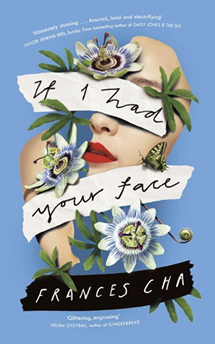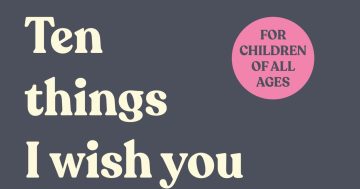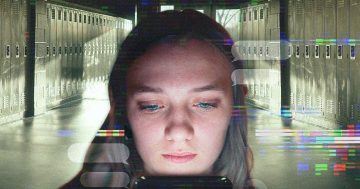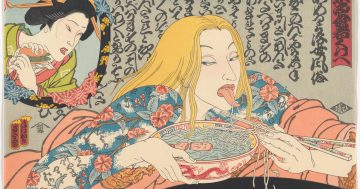Reviewed by Robert Goodman.
By Frances Cha, Penguin, $29.99.
 South Korea has the highest rate of plastic surgery in the world. K-Pop and K-Drama stars set benchmarks of beauty that cannot be reached without significant cosmetic reconstruction. The characters in Frances Cha’s new book If I Had Your Face, know all of this, and yet some of them mortgage their lives to the industry anyway in the hopes of bettering themselves.
South Korea has the highest rate of plastic surgery in the world. K-Pop and K-Drama stars set benchmarks of beauty that cannot be reached without significant cosmetic reconstruction. The characters in Frances Cha’s new book If I Had Your Face, know all of this, and yet some of them mortgage their lives to the industry anyway in the hopes of bettering themselves.
Ara lives with Sujin, both live across the hall from Kyuri and Miho. Kyuri is a “room salon girl”, she has had, and continues to have, numerous surgeries so that she is one of the “top 10%” in beauty. The room salons are essentially high price brothels where rich men go to live out their fantasies with compliant women. Despite knowing all of this this, Sujin is “hell bent” on joining Kyuri. She scrapes together the money to have surgery that leaves her bandaged and in pain for the majority of the book. Ara supports Sujin in her recovery and while Ara does not seek out the surgery herself, obsesses over a K-Pop star who himself is an avatar of Korean celebrity culture. Ara is mute due to an incident when she was younger and works in a hair salon. Meanwhile Miho, an artist returned from a scholarship in New York, has a wealthy well-connected boyfriend, a relationship that is itself like something out of a K-Drama but with less likelihood of a happy ending. And downstairs is Wonna, older than the young women above her, who finds herself pregnant and unsupported by her husband.
There is not much plot to If I Had Your Face, it is more a series of character studies and revelations about Korean society and culture. Cha does delve into the character’s backstories and there is a forward momentum to their present lives but it is more a description of day-to-day events. These characters are all at the bottom of the tree, they keep finding themselves butting up against the classism that is also holding them back. As Miho observes:
That’s Just the way it is in this country, and the reason why people ask a series of rapid-fire questions the minute they meet you. Which neighbourhood did you live in? Where did you go to school? Where do you work? Do you know so-and-so? They pinpoint where you are on the national scale of status, then spit you out in a heartbeat.
This is not all an indictment on Korean society. The characters may have it tough but they support each other through their struggle. None of them are paragons of goodness, all are drawn as complicated and complex. And while there is no real resolution for any of them by the end of the book, there is some light at the end of the tunnel for most.
With Parasite (which has very similar themes) winning a best picture Oscar highlighting the strength of the Korean film industry, K-Drama beaming across the world through streaming services, and K-Pop fans taking on Donald Trump, it feels like Korean culture is coming into the spotlight. If I Had Your Face is a rich and nuanced look into this culture through the eyes of a group of engaging if challenged women. While Cha does expose a culture riven by class and a dark underbelly of exploitation, the characters point of view shows that while life may be challenging, for them it is also mostly positive.
This and 500 more reviews can be found at www.pilebythebed.com.











